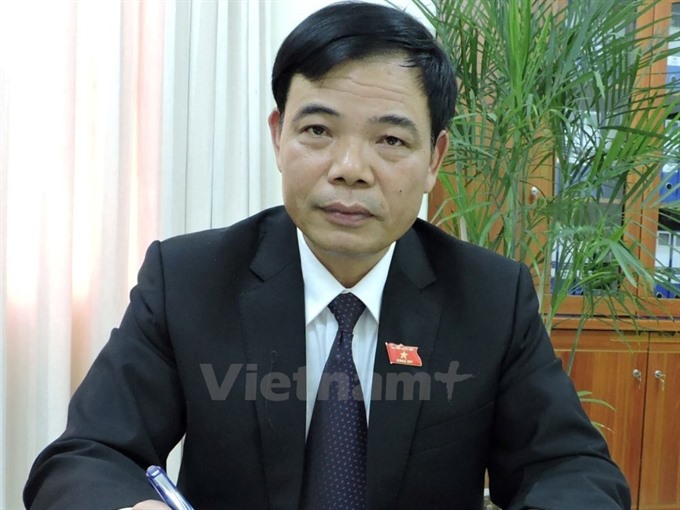.jfif) Opinion
Opinion

Nguyễn Xuân Cường, Minister of Agriculture, speaks to Nông thôn Ngày Nay (Countryside Today) newspaper on the importance of good preparations to minimise the negative impacts of natural disasters
 |
| Minister Nguyễn Xuân Cường |
Nguyễn Xuân Cường, Minister of Agriculture, speaks to Nông thôn Ngày Nay (Countryside Today) newspaper on the importance of good preparations to minimise the negative impacts of natural disasters
The weather in the last six months was rather abnormal compared to previous years, do you agree?
The weather in the last six months was rather abnormal due to the impacts of the climate change and extreme weather patterns. From the onset of 2018, Việt Nam was hit by an unusual cold spell and heat as well as heavy rains. For example, in June from 22-26, heavy rains were recorded in northern mountainous provinces as a normal weather pattern, while heavy rains normally only happen in August and September. It was reported the rainfall in June, in some places, was recorded at almost 600mm. Following heavy rains was a long heatwave lasting eight days. Temperatures in the northern mountainous region, the Red River delta and in the central provinces were recorded at 40-41 degrees Celsius.
What lessons have we learned from the freak weather?
We have drawn four lessons.
First, we were on alert constantly. Though the weather in the first few months of 2018 was normal, we were well prepared for any abnormal things to happen. Right from the onset of 2018, the PM chaired a national meeting to raise awareness and prepare measures to respond to abnormal weather and consequences of climate change.
Second, under the guidance of the Central Steering Committee and provincial steering committees nationwide, we conducted training courses on how to handle the aftermath of abnormal weather.
Third, we did try our best to incorporate lessons learned from previous years into 2018’s plan.
And finally, with experiences from previous years, particularly in 2017, the Prime Minister, in 2018, granted a programme worth VNĐ 1.5 trillion (US$65 million) to the Mekong Delta and issued a resolution for northern mountainous provinces on how to cope with geologic hazards and vulnerabilities before heavy rain.
Recently, northern mountainous provinces were hit by a series of natural disasters, but with good preparations, the situation there was well under control. What lessons did we learn then?
There were two main lessons.
First, it was thanks to good co-ordination from the Central Government to localities. From June 24, the Prime Minister and the National Steering Board issued specific instructions to concerned ministries and agencies on their tasks. On the same day, the National Steering Board sent a working group to Lai Châu to give instructions to local leaders and people on how to limit the impacts of natural calamities.
Second, with instructions from the PM and the National Steering Board, Lai Châu authorities focused the province’s priorities on protecting the provincial transport system and the high power grid system as they are the most essential instruments in saving lives and property as well as in repairing damage.
As a result, 297 households in weak spots in Lai Châu Province were evacuated to safe places. For example, in the evening of June 25, all people in Sáng Tùng Hamlet were ordered to evacuate and by early the next day, the hamlet was destroyed by landslide.
Please talk more about preparation activities to cope with natural disasters in the remaining months of 2018?
As we all know, good preparations can help to ward off negative consequences of natural disasters, including organising training courses and launching mass communication campaigns. Of course, in serious cases, we can mobilise the armed forces, including the policy forces to participate in activities to address the natural calamities.
In the future, we should further co-operate with foreign weather forecast agencies to make our weather forecasts more precise.
Last but not least, we should pool efforts on preventive activities to ward off negative consequences from natural disasters.—VNS